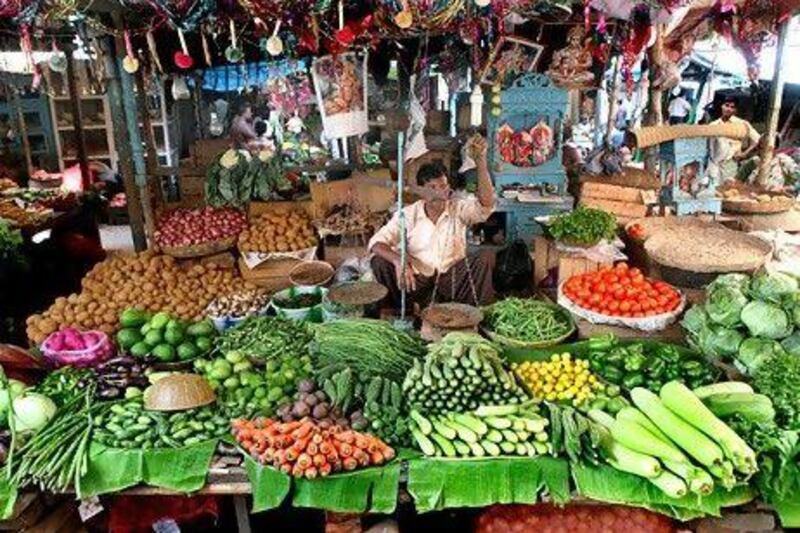It is not just farmers in India who are lamenting lower levels of rainfall during this year's monsoon season - shoppers across the Emirates are feeling the heat too.
Less than expected precipitation in India is pushing up the price of fruit and vegetable imports for the UAE. India is one of the biggest exporters of food into the country with the majority of edible products in the Emirates imported from Asian and African countries.
"The prices definitely have gone up," said V Nandakumar, a spokesman for LuLu Hypermarket, based in the UAE, which has more than 100 stores across the GCC and Middle East.
"We all know monsoon has not been great in India this year," Mr Nandakumar said. "I hope it becomes better fast."
The prices the supermarket chain is paying for fruit and vegetables from India have gone up by about 10 to 15 per cent compared with about two months ago, Mr Nandakumar estimated.
Mangoes, green vegetables, potatoes, pulses, rice and onions are among the products Lulu imports from India. Figures from the Agricultural & Processed Food Products Export Development Authority (Adepa) in India, show the UAE accounted for 61.79 per cent of India's fresh mango exports in the fiscal year 2010-2011 and 9.55 per cent of its total exports of fresh onions.
Low rain levels and the risk of drought plaguing India's agriculture industry have added to rising food prices in India as the country grapples with soaring inflation, slowing economic growth and a weak rupee.
Ashok Gulati, the chairman of the commission for agricultural costs and prices in India, admitted low rain levels in India were likely to have an impact on food prices there and subsequently on exports to the UAE.
"I'm not sure whether [the authorities in India] will put in export controls," Mr Gulati said.
"They are monitoring the prices and supply almost on a weekly basis. Many of these vegetable prices have gone up already, led by potatoes. That's a different reason - because about six months back, they were being sold at 2 rupees a kilogram and farmers walked away."
Government price controls on essential commodities in the UAE, however, mean retailers do not have flexibility to pass rising costs on to consumers.
"We have a policy … where we keep our prices as low as possible because of Ramadan," said Mr Nandakumar.
In Mumbai, market stallholders said they had been forced to raise their prices.
"All rates have to go up," said Moriya Gupta, a potato and onion seller in Colaba in Mumbai. "There's no rain."
He said potatoes were now priced at 22 rupees (Dh1.44) per kilogram compared with 16 rupees about three months ago, while onions were 14 rupees per kilogram from 12 rupees.
"We have to eat, so we have to buy if it is less or more expensive," said AK Khan, a shopper in the Colaba market.






